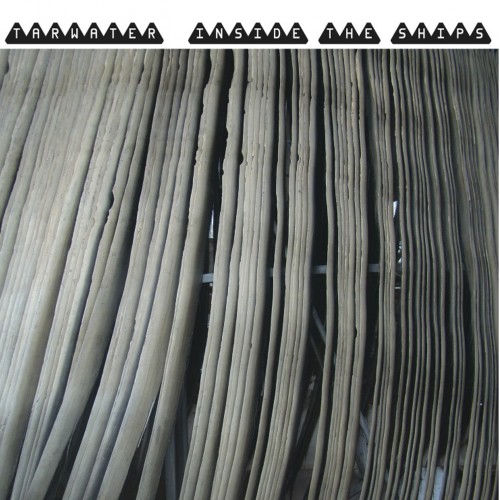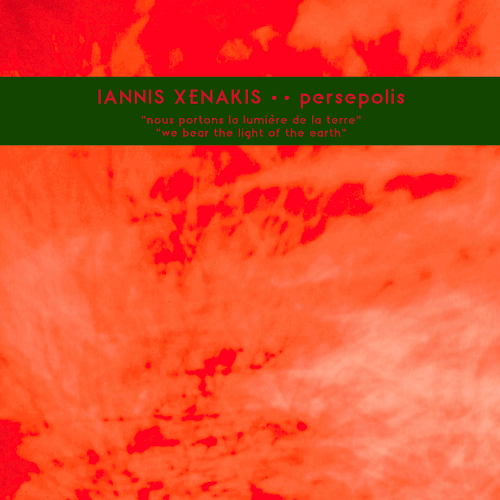 Some medical beast had revived tar-water in those days as a fine medicine, and Mrs. Joe always kept a supply of it in the cupboard; having a belief in its virtues correspondent to its nastiness. At the best of times, so much of this elixir was administered to me as a choice restorative, that I was conscious of going about, smelling like a new fence.”
Some medical beast had revived tar-water in those days as a fine medicine, and Mrs. Joe always kept a supply of it in the cupboard; having a belief in its virtues correspondent to its nastiness. At the best of times, so much of this elixir was administered to me as a choice restorative, that I was conscious of going about, smelling like a new fence.”
2011’s Tarwater is a considerably more delicious proposition. Since having formed in Berlin in the mid 1990s, the electronic duo of Bernd Jestram and Ronald Lippok have put in an epic shift at the bleepface, winning the Bryn Jones Productivity Award by a country mile after issuing ten albums under the Tarwater banner, numerous collaborative pieces with other artists, and a catalogue of music for theatre and film. Inside the Ships is the band’s eleventh studio album, and as nice a summation of the band’s career so far as any album originally intended to be a space opera could be. Although the space genre has produced many fascinating and wonderful albums over the years – from Hawkwind’s mighty 1973 epic In Search of Space to Lobby Loyde’s nutzoid but great Beyond Morgia: The Labyrinths of Klimster – it’s perhaps not the genre that one would necessarily have bet on finding Tarwater embarking into for their first album of the new decade. As it transpires, though, the finished Inside the Ships album is not actually the space opera originally intended, although afterburn echoes of that astral travelling can perhaps be heard in the same way that Who’s Next couldn’t quite shake off the science fiction rock opera Lifehouse that had been its progenitor.
Kicking off with “Photographed,” one of the album’s main precepts is immediately apparent, that of mixing both digital and analogue sources to create a density of sound that is both warm yet machine-efficient, its sound and flat vocals redolent of some of Coil’s similar moments. The title track, “Inside the Ships,” with its sorrowing melody and bursts of Joujouka-like piping is utterly sumptuous, whilst “Radio War” is like some retro-futurist vision of the airwaves over Cold War Berlin, referencing Orson Welles’ original jumping off point over a glacial soundscape that could see John Foxx driving around Alexanderplatz in a rusty Trabant.“In A Day” fuses some pure 1980s percussion sounds over an almost danceable beat, “Now and Again” is a mournful one-minute lament complete with a knowing lyrical nod to Captain Beefheart, whilst “Get On” fuses lolloping a acoustic drum pattern that could come from Tortoise with synthesised vocals that cannot help but recall fellow countrymen and electronic music ur-source Kraftwerk. “Do The Oz” is a very curious inclusion, a John and Yoko cover, and originally the Phil Spector-produced B-side of the God Save Oz single that the terrible twosome recorded as a fundraiser in 1971 for the Oz obscenity trial…demonically sexualised Rupert Bears et al. Running the strange hokey cokey style lyrics through the Germanic English filter gives the song a peculiar distance, whilst a coating of subtle saxophone, Residents-style scales and backwards Man from Another Place vocals lends the song a slightly unsettling air; all told, Tarwater’s version is demented and wonderful in equal measure, a real curve-ball against the overly familiar posturing of much modern electronic music.
“Furkan,” a three minute tone poem, again elegantly elides the acoustic percussion and saxophone with some deft electronica, and “Sato Sato” is a second cover, a faithful yet gently altered rendering of the track by Düsseldorf’s pioneering Neue Deutsche Welle / Electropunk duo D.A.F. The track also marks the first appearance of German language lyrics in Tarwater’s oeuvre, which, as both a huge fan of the language, and a fierce proponent of breaking the stranglehold of English in modern music, is hopefully the first of many such outings. “There Never Was a Night” fuses pulsing electronic bass with a ghostly and insistent oud-like stringed figure, distorted vocals more Residentsial foreground dissonance. It’s an odd and uncomfortable blend but somehow Tarwater manage to make the whole coherent and more than the queasy bedfellow constituents, like a musical version of Heston Blumenthal’s snail porridge. The album closes quietly with “Palace at 5AM,” based around imagery taken from inveterate French drinker, poet, essayist and critic Charles Baudelaire, and exhorting the listener that this is the hour to be drunken. You don’t need any more encouragement; crack open the Laphroaig.Inside the Ships is a strange and intriguing album, understated yet unafraid. Mixing a hugely diverse range of inputs, there are many secrets not yielded up on initial listening, which, pleasingly, means that it repays repeated investigation and enables, and even beckons, the listener to mine on down into its core. It’s accessible too, even hummable in places.
And it won’t leave you smelling like a new fence.
-David Solomons-



